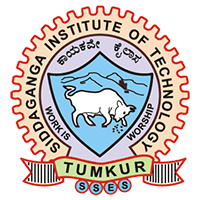Available courses
|
Course Learning Objectives (CLOs): This course will make to student to: |
|
|
1 |
Define fundamental OS abstractions such as processes, threads, files etc, (L1-knowlegde). |
|
2 |
Visualize the intricate relationship between an operating system and its underlying hardware (L1-knowlegde). |
|
3 |
Explain scheduling algorithms, deadlock detection algorithms and memory management strategies (L2-Comphrension. |
|
4 |
Apply the principles of concurrency and synchronization, to write concurrent programs/ software (L3-Application). |
COURSE OUTCOMES (COS): At the end of the course the student will be able to:
|
CO1 |
: |
Identify the services, functions and structure of different operating systems. |
|
CO2 |
: |
Apply and analyze appropriate scheduling algorithm for process selection and execution. |
|
CO3 |
: |
Identify and analyze the techniques used to solve process synchronization issues. |
|
CO4 |
: |
Apply and analyze various deadlock prevention, avoidance, detection and recovery mechanisms to solve real world problems |
|
CO5 |
: |
Analyze the performance of various memory management techniques and page replacement algorithms |
This course introduces the use of numerical computational techniques to provide solutions to Civil Engineering problems including construction management, hydraulics, environmental and geotechnical engineering.
Faculty - Dr. H.SIDDESHA
Teacher
Faculty - Dr. K.H.MAMATHA
Teacher
Faculty - Dr. MUTTANA S. BALREDDY
Teacher
Faculty - Dr. NAHUSHANANDA CHAKRAVARTHY H G
Teacher
Faculty - Dr. SREEDHARA B M
Teacher
Pavan Kumar Emani
Teacher
Dr. Vinay HN
Teacher
Dr.Roopa M
Teacher
Dr. Harsha MM
Teacher
Ganapatil patil
Teacher
Dr. G. Veerappa devaru
Teacher
Faculty - Dr. H.SIDDESHA
Teacher
Faculty - Dr. K.H.MAMATHA
Teacher
Faculty - Dr. MUTTANA S. BALREDDY
Teacher
Faculty - Dr. NAHUSHANANDA CHAKRAVARTHY H G
Teacher
Faculty - Dr. SREEDHARA B M
Teacher
Pavan Kumar Emani
Teacher
Dr. Vinay HN
Teacher
Dr.Roopa M
Teacher
Dr. Harsha MM
Teacher
Dr. Punith raj
Teacher
Dr.Vijay V N
Teacher
This course introduce ARM Processor basics and instruction set. Writing the assembly level programs related to ARM processor. Introduction to LPC2148 Microcontroller architecture and writing the embedded C programs along with interfacing the different input or output device.
Introduce students to basic programming concepts and the fundamentals of computing.
-
Help students think algorithmically: learn to design algorithms and flowcharts / pseudocode before coding.
-
Teach the syntax, semantics and structure of the C programming language — so students can write, compile, debug and run simple to moderately complex C programs.
-
Build problem-solving skills and logical thinking through coding, and prepare a foundation for more advanced courses (data structures, systems programming, etc.)
Skip course categories



